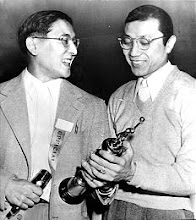When to Sell Stock
from buyingvalue.com/2009/04/when-to-sell-stock/
Read any investment book, blog, or magazines and you will see a multitude of recommendations related to buying stocks. Unfortunately, little is written about selling the stocks that you already own.
I use three key principals in deciding when to sell a stock:
Principal 1: Don’t be greedy.
Principal 2: Don’t be afraid to admit you were wrong.
Principal 3: Don’t let your carriage turn into a pumpkin.
Don’t Be Greedy
This one is pretty obvious but I am always surprised by how often investors overlook this rule. Value investing is all about determining the intrinsic value of a company and then purchasing the company below this value. If done right the market eventually realizes its mistake and drives the price of the stock up, or past, your assessed value. It happens all the time though, encouraged by a sudden increase in the stock’s price to our assessed value we hold the stock hoping that it will continue its accent. We have put our brains on the shelf and greed is driving our decision making process.
Always set an exit point and get out there, be it a percent return or a fixed dollar amount. When you decide what a fair price to buy the stock is you should know what a fair price to sell the stock for is also. When emotion and excitement get involved mistakes are going to get made.
Don’t Be Afraid to Admit When You Were Wrong
We all make mistakes. If you have done a good job researching a company you will have read everything you can about it and have made a decision to buy based on the facts available at the time. Unfortunately new facts are always arising, or perhaps you missed something at the time of your initial investment. When these facts present themselves you need to reassess you decision and perhaps get out while you can. This may involve taking a substantial loss, but if the company you thought you invested in turns out not to be the company you actually invested in you had best get out quick.
Don’t Let Your Carriage Turn Into a Pumpkin
Companies don’t stand still, they develop new products, hire and fire senior roles, get contracts, loose contracts etc. If you bought stock in any fortune 500 company ten, or even five years ago, odds have it they are a substantially different company now than they were back then. It is your job as an investor to keep tabs on the company, understand its direction, understand how it makes money, and if it can continue to make money. If the company changes so much that the reasons you bought in aren’t there anymore then you had best get out.
I make an effort to reassess every company I own on a yearly basis. I ask myself, if I was buying this company today is what I paid still a good price? If the answer is no, or I can’t understand the business anymore then I am out and done with it.
1981 Northern California NAU WAU Championships
6 years ago

No comments:
Post a Comment